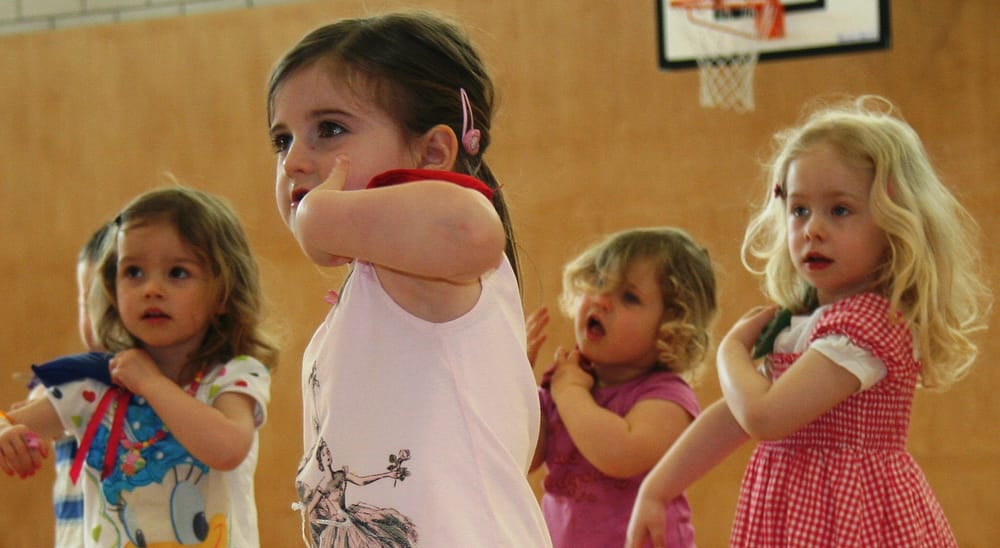Tips to get kids moving: Melinda Sothern, is a professor of health promotion at the Louisiana State University. Part of The Health Sciences Centre School of Public Health in New Orleans.
Encouraging kids to get outdoors and be physically active is usually easier in the summertime. The hard part is finding ways for children to get moving and stay active year-round. Making fitness a regular part of a child’s day has its challenges. For one, kids today have replaced outdoor play with sedentary pursuits, such as computer-based games, texting or Instagramming,
About one-quarter of children in the U.S. ages 6 to 15 are at least moderately active for 60 minutes a day. Based on five or more days a week. According to data from the CDC’s National Health and Nutritional Examination Survey (NHANES). Forty-two percent of children ages 6 to 11 get at least 60 minutes of moderate activity. However, only 8 percent of kids ages 12 to 15 got this level of activity, the CDC found. Being more physically active not only benefits children’s physical health. But reduces their risk of obesity, diabetes, high blood pressure and high cholesterol. It also improves kids’ mental well-being and social
Lead By Example
Parents should be role models for their children by showing them that they prioritise an active lifestyle![]() and make time for it. Stoler said. “It makes a big difference when a parent practices what he or she preaches,” she said. Parents don’t have to be superfit, but they should set an example, Sothern said. “Active parents typically have active children,” she added. fun ask the children from our classes.
and make time for it. Stoler said. “It makes a big difference when a parent practices what he or she preaches,” she said. Parents don’t have to be superfit, but they should set an example, Sothern said. “Active parents typically have active children,” she added. fun ask the children from our classes.
Mix it up
- Parents should also encourage kids to do activities other than those that the parents do, Stoler told Live Science. Expose children to a wide variety of sports and activities, so that they can find out what they like to do. Rather than feel confined to the same fitness activities their parents do.
- Be creative. Parents can be creative and make taking a walk more fun for kids, Stoler suggested. For example, a walk can turn into a scavenger hunt in your own neighbourhoo. You could draw up a list of things for children to find along the way, such as a fruit tree, a house with a red door or an out-of-state license plate parked in the driveway. Another idea is to play a game, such as “Follow the Leader” or “Simon Says.” In which the leader switches up the movements the walkers do at different points along the way. Such as hopping, jumping, skipping and galloping, Stoler said.
- Use fun equipment. Fill a tub with balls, jump ropes, racquets, Frisbees and other items that encourage outdoor yard games, Sothern said. In addition, create a physical activity centre with safe, indoor active toys and games to have fun indoors when the weather is cold or rainy. “Call it ‘an imagination station,'” Sothern said, and include items such as hats, scarves and clothes for dress-up, puppets, music CDs, batons, indoor basketball hoops, foam balls, bean bags, the game “Twister” and toy musical instruments.
- Move during screen time. While watching TV as a family, stand up and do the “TV commercial boogie” whenever the ads appear on the screen. Keep moving during the entire break, Sothern recommended.
- Make it family time. Dedicate at least a half day over the weekend for family fun and fitness, Sothern suggested. Draw up a list of activities that the entire family can enjoy together. Such as going for a bike ride, flying kites in a local park or participating in a fun run — and then put them on the calendar.
Tips for getting kids to exercise:
When it comes to being physically active, children have different needs and motivations based on their age. The experts offered the following advice for encouraging kids of certain ages to move more:
Ages 12 and older: After age 12, kids can zone in on one activity, Sothern said. Although younger children would be too bored, kids 12 and older can participate in and enjoy sustained activities, such as cycling, treadmill walking or using exercise machines. They tend to like class-oriented activities geared toward a goal, such as getting into better shape or making the dance or baseball team at school. Sothern recommended that parents not ask older children, “What do you want to do?” A better approach is to give teens choices about physical activity by saying, “Would you like to vacuum the house, shoot some hoops or take a walk with me?
Ages 5 and under: The important thing with this group is to get them away from screens (TV, computer and mobile devices). In the absence of screen time, children in this age group have an innate natural tendency to move. If parents take kids outside or to a playground, youngsters will run around, climb or play with movable toys they can push or pull. If parents create situations and places for young children to play inside and have items to help them move, pre-schoolers will move. Toddlers and pre-schoolers also may enjoy the physical activity that comes with helping their parents do household chores, such as transferring clothes from the washer to the dryer, loading the dishwasher or watering plants, because they like to role play as grown-ups, Sothern said.
Ages 5 to 12: School-age children enjoy basic yard games and social games, such as playing hide-and-go-seek or tag, Sothern said. They are also eager to learn the basic skills to do various sports and be around other children. Whether it’s a parent, a physical education teacher or a coach, someone needs to show kids how to do things. Such as kick a football, throw a baseball, swim, swing a tennis racket or do martial arts. Pleasing others, rather than competing, is what typically motivates school-age children, Sothern said. They also may enjoy doing household chores such as watering plants or vacuuming, she said.
More Information
More on this subject. 5 Fitness Tips For Parents from Stretch-n-Grow
If you have questions, please Contact us. Stretch-n-Grow is a Worldwide Programme





